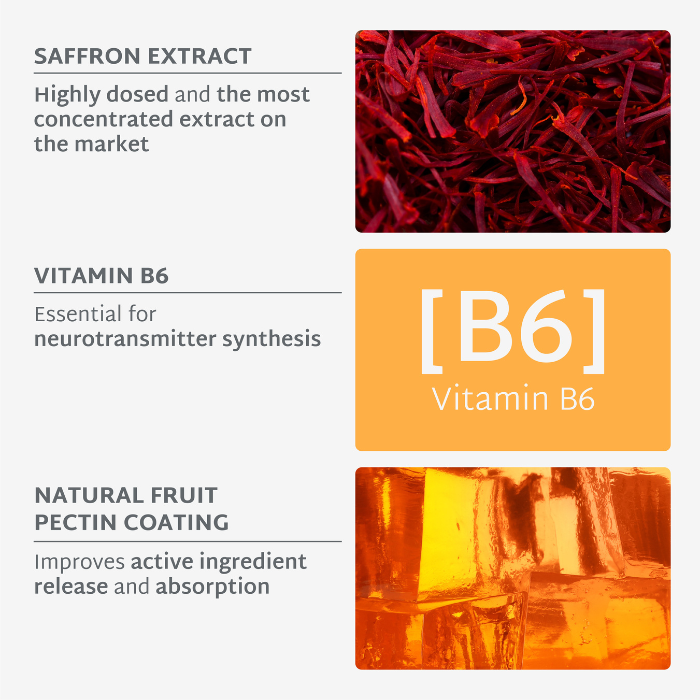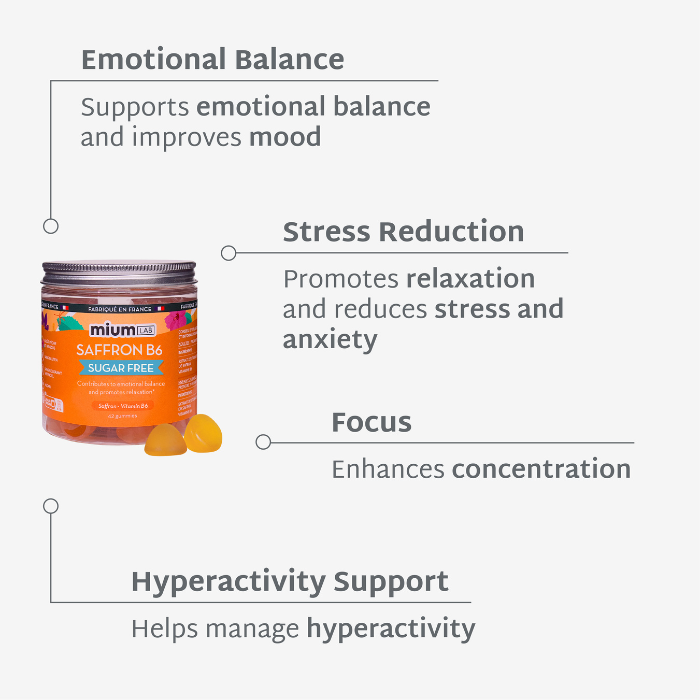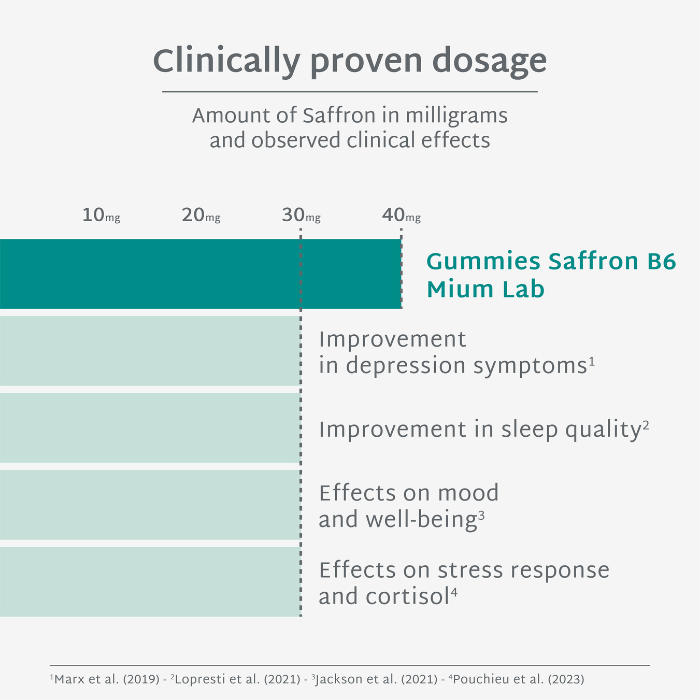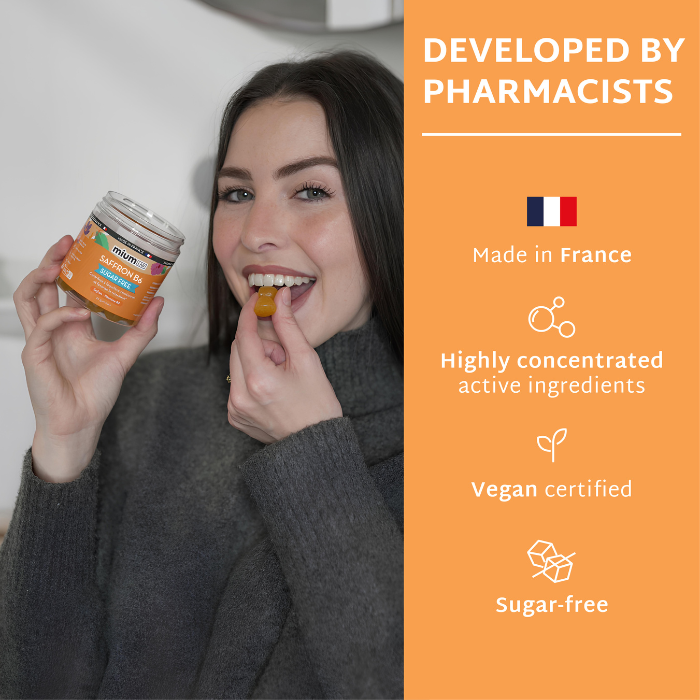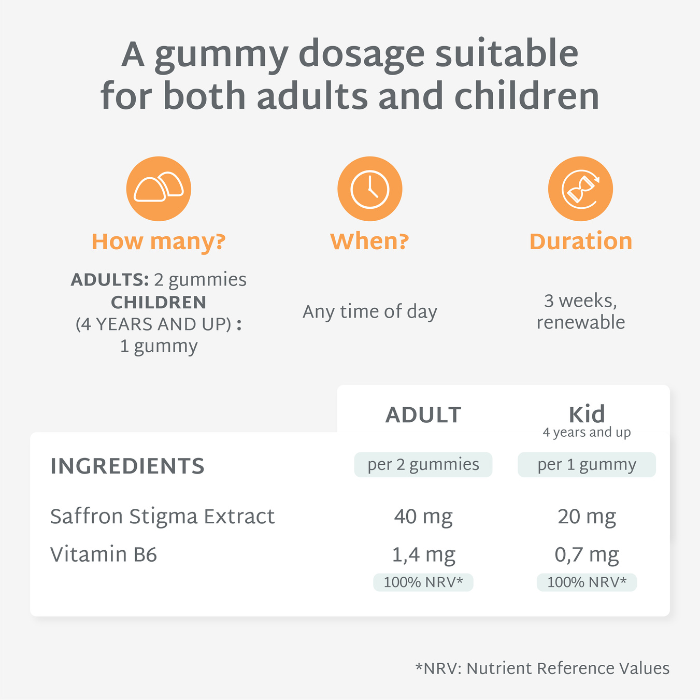Our Saffron B6 gummies currently contain the highest dosage on the market, with 40mg of saffron per 2 gummies, compared to an average of around 30mg.
Our saffron is sourced from the precious red part of the flower, known as Sargol, a symbol of premium saffron quality. Our 100% red saffron is classified as Category 1, the highest distinction awarded by international standards, such as those set by the International Organization for Standardization (ISO). This classification is based on strict quality criteria, including colour intensity (crocin), characteristic aroma (safranal), and specific taste (picrocrocin). Category 1 signifies the highest levels of these bioactive compounds, ensuring superior quality in terms of colour, aroma, and taste.
The saffron in Mium Lab's Saffron B6 gummies works specifically to support mood, stress, skin, sleep, and premenstrual syndrome.
Our saffron, sourced from organic farming, is also certified vegan, kosher, and halal.














